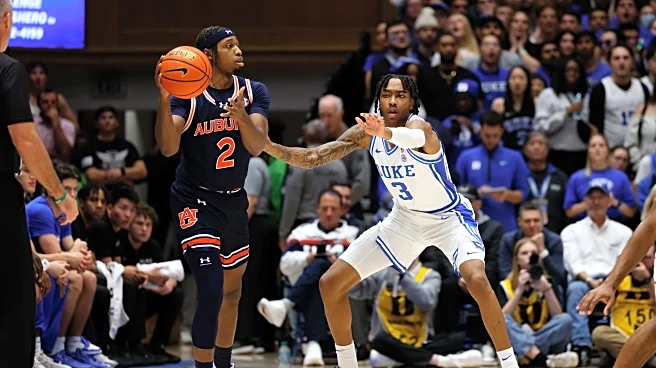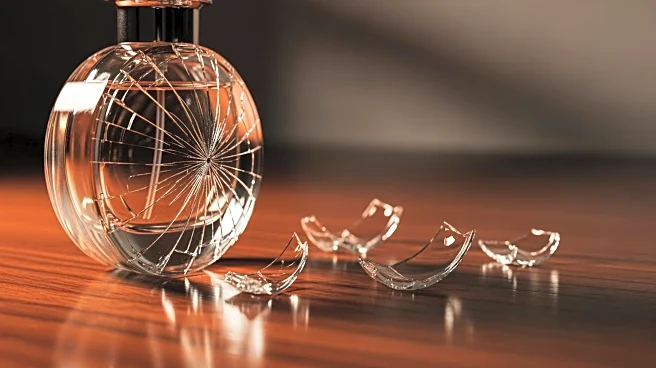Most of us are familiar with quads, open areas shaped like rectangles or squares that are surrounded by buildings. Or maybe we’re familiar with the four large muscles at the front of a thigh. Lately, though,
and we admit this is a lame intro, quads mean something entirely different, at least in NCAA men’s basketball.
Last season a great deal of attention was paid to Quads, as in wins and losses against opponents differentiated by various tiers of competence ranging from Quad 1 to Quad 4. As ACC adherents heard loud and clear, the NCAA’s quad system revealed a paucity of tournament-worthy programs in the league last season.
Within the conference, schedules so lacked Quad 1 matchups teams’ stature suffered even when they won, since few members were rated highly enough to burnish a victor’s status. UNC’s schedule offered ample opportunities for enrichment but offered so little success against meaty rivals — 1-12 against Quad 1 opposition — the Tar Heels barely squeaked into the NCAA field. And were eliminated in the second round by Mississippi of the SEC.
Clearly, the goal of the Quad emphasis is to test and reward good teams for taking on tough opponents home and away. A few ACC coaches, Duke’s foremost among them, have historically persisted in scheduling with this high-test measure in mind, believing team skills and attitudes benefit from meeting a superior level of competition. The exposure provided by marquee contests also draws ambitious recruits and enhances media attention.
Duke is enough of a draw that it’s able to command formidable matchups at neutral sites, or at least at non-campus arenas. This year a visit to Michigan State’s Breslin Center on Dec. 6 is the sole Blue Devil visit to the distinctly hostile court of a dangerous non-ACC opponent. Duke also journeys this coming Tuesday (11/11) to Army’s Christl Arena, built long after Mike Krzyzewski played for the Black Knights under Bob Knight. (Someone needs to fix this: The Wikipedia page for Army basketball, whose perennially weak teams have never made the NCAAs, still lists Knight, not Coach K, as “the coach with the most wins in NCAA men’s basketball history”.)
On the other hand, coaches also make good use of the preseason — as the nonconference games preceding league play are sometimes called — to iron out wrinkles in execution, try various player combinations, test the capabilities of individuals, and build group cohesion and confidence, preferably through victory. In this era of quick roster transition augmented by uneven player financial rewards, getting a feel for the athletes on hand is key to success.
“You don’t get to build a program,” new NC State coach Will Wade said hyperbolically this past summer as he reconstituted the Wolfpack. “Now, you build a new team every season and try to put together the best team you can.”
Well, not exactly. Programs that sustain success across multiple seasons and coaching regimens still dot the early AP Top 10, including Duke, Purdue, Florida, UConn, and Kentucky. Perennially powerful UCLA, Arizona, Illinois, Kansas, Gonzaga, Michigan State, and North Carolina also appear in the top 25, reflecting both their habitual prowess and AP voters kneejerk preference for big-name contestants.
Certainly, though, you can see how the unsettled nature of the current game fits the viewpoint espoused by Wade, a peripatetic 42-year-old now at his fifth head coaching station since 2013.
Seven of those AP Top 10 teams are on ACC schedules this season, not to mention league games against No.6 Duke. None face NC State, which does host Top-20 Kansas and ventures to No. 20 Auburn (coached by Steven Pearl, son of retired head man Bruce Pearl) in the challenge series with the SEC.
Wake Forest is the only ACC school that matches Jon Scheyer’s Blue Devils in taking on elite competition. Steve Forbes has produced three 20-win seasons and a trio of top-5 ACC finishes in five years, yet has failed to secure an NCAA bid.
This season Forbes appears intent on earning Wake’s first NCAA berth since 2017. The Demon Deacons potentially play three preseason Top 10 teams in Michigan at Detroit, Texas Tech and then perhaps top-ranked Purdue in the Baha Mar Championship in Nassau, Bahamas. The Deacs also have Oklahoma in the ACC-SEC Challenge and West Virginia in the Holiday Hoopfest in Charleston, W. Va.
Five other ACC squads take on Top 10 teams, with only Florida State and Miami playing two each. The Hurricanes are the sole ACC unit scheduled to meet BYU and 6-9 freshman AJ Dybantsa, with Duke’s Cam Boozer and Darryn Peterson of Kansas the early speculative favorites for the NBA’s top pick in 2026.
Kansas, 19th in the preseason poll, faces five ACC teams – in chronological order UNC, Duke, Notre Dame, Syracuse, and NC State. KU already commenced its ACC tour by being soundly thrashed by the Tar Heels. The Jayhawks also host No.4 UConn before launching their Big 12 schedule.
| RESUME POLISHERS 2025-26 Games By ACC Members Against AP Preseason Top-10 Teams (Excluding League Games Vs. Duke) |
||
|---|---|---|
| 3 | D | Fla, Texas Tech (NYC), Mich (DC) |
| 3 | WF | Tex Tech, @Mich, Purdue (maybe) |
| 2 | FSU | @Fla, @Houston |
| 2 | UM | Fla (neutral), BYU |
| 1 | UL | UK |
| 1 | NC | @UK |
| 1 | SU | Houston (N) |









